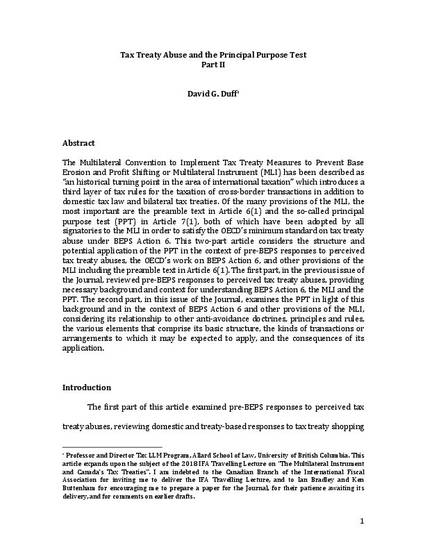
- international tax,
- tax avoidance
The Multilateral Convention to Implement Tax Treaty Measures to Prevent Base Erosion and Profit Shifting or Multilateral Instrument (MLI) has been described as “an historical turning point in the area of international taxation” which introduces a third layer of tax rules for the taxation of cross-border transactions in addition to domestic tax law and bilateral tax treaties. Of the many provisions of the MLI, the most important are the preamble text in Article 6(1) and the so-called principal purpose test (PPT) in Article 7(1), both of which have been adopted by all signatories to the MLI in order to satisfy the OECD’s minimum standard on tax treaty abuse under BEPS Action 6. This two-part article considers the structure and potential application of the PPT in the context of pre-BEPS responses to perceived tax treaty abuses, the OECD’s work on BEPS Action 6, and other provisions of the MLI including the preamble text in Article 6(1). The first part, in the previous issue of the Journal, reviewed pre-BEPS responses to perceived tax treaty abuses, providing necessary background and context for understanding BEPS Action 6, the MLI and the PPT. The second part, in this issue of the Journal, examines the PPT in light of this background and in the context of BEPS Action 6 and other provisions of the MLI, considering its relationship to other anti-avoidance doctrines, principles and rules, the various elements that comprise its basic structure, the kinds of transactions or arrangements to which it may be expected to apply, and the consequences of its application.
